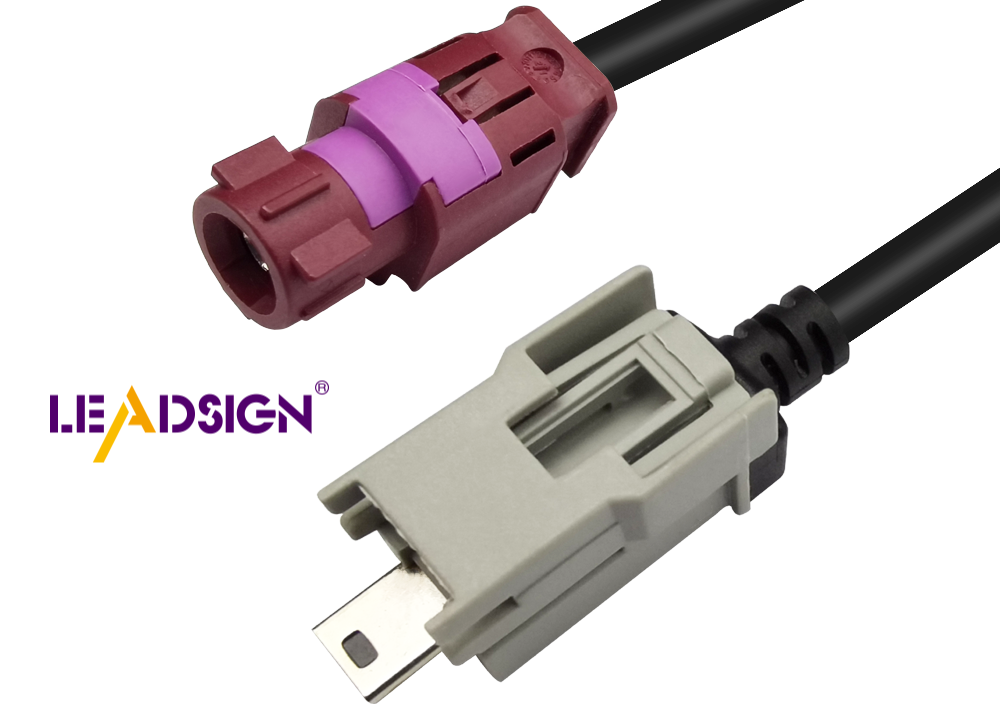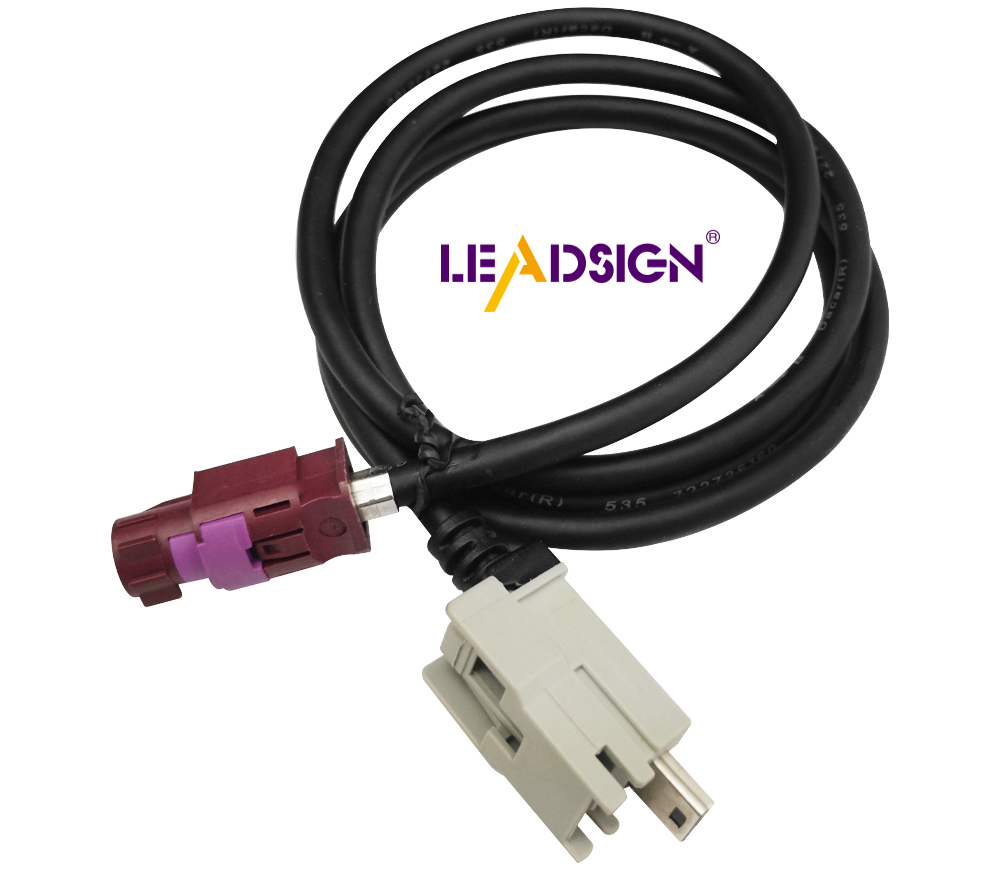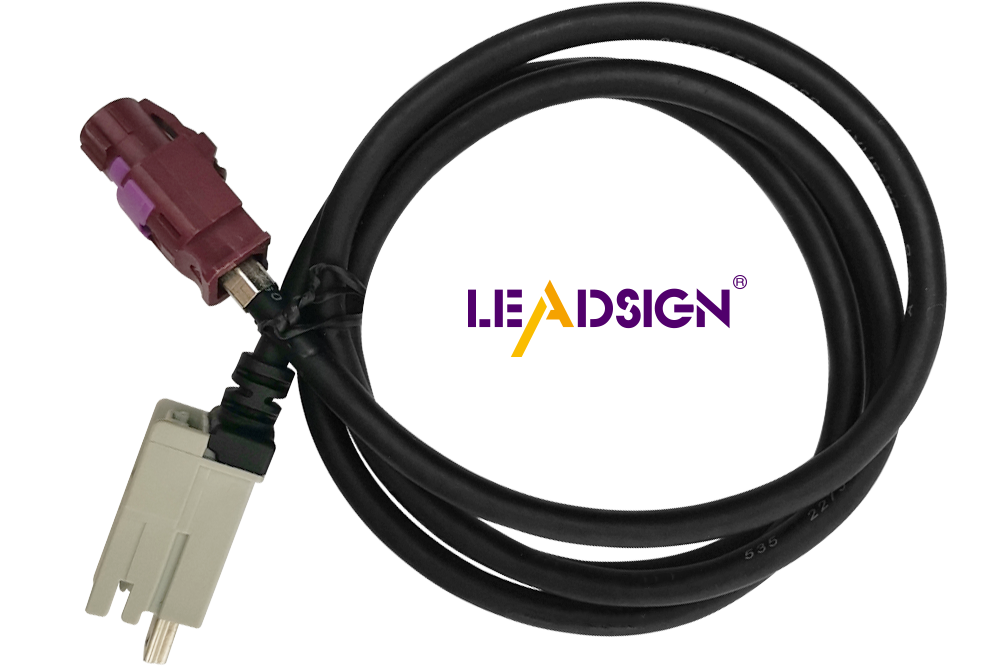Reliable Electrical Connector Types for Every Task

Electrical connector types play a crucial role in ensuring reliable connections. The right choice of connectors guarantees safety and efficiency. Connectors serve various applications, from automotive to home use. Each application demands specific connector features. The selection process involves understanding the requirements and matching them with suitable connectors. Proper connectors enhance performance and prevent potential hazards. Electrical systems rely on these components for seamless operation. A well-informed choice leads to optimal functionality and longevity.
Automotive Applications
Electrical Connector Types
Sealed Crimp Pin Connectors
Sealed Crimp Pin Connectors provide reliable connections in automotive applications. These connectors ensure secure connections and easy disconnections. Each connector package matches a specific wire gauge. A perfect match between the connector and wire gauge reduces electrical resistance. The material and size of these connectors influence current flow. An improper connector choice can lead to malfunctioning. Sealed Crimp Pin Connectors offer protection against moisture and contaminants. This protection enhances the longevity of electrical systems in vehicles.
HSD Connectors
HSD Connectors serve high-speed data transmission needs in automotive settings. These connectors support infotainment systems and advanced driver-assistance systems. HSD Connectors maintain signal integrity under harsh conditions. The design of these connectors minimizes electromagnetic interference. Proper connectorization early in the design phase benefits product life. HSD Connectors ensure seamless communication between vehicle components. These connectors also accommodate various automotive protocols.
Features and Benefits
Durability
Automotive electrical connector types demand durability. The robust design of connectors withstands extreme temperatures. These connectors resist corrosion and mechanical stress. Durable connectors reduce maintenance needs and extend system life. The use of high-quality materials ensures long-lasting performance. Durability in connectors prevents unexpected failures. Reliable connectors enhance overall vehicle safety.
Vibration Resistance
Vibration resistance is crucial for automotive electrical connector types. Vehicles experience constant movement and vibrations. Connectors with vibration resistance maintain stable connections. This feature prevents signal loss and connection failures. Vibration-resistant connectors ensure uninterrupted power supply. The design of these connectors absorbs shocks and vibrations. Reliable connectors contribute to the smooth operation of automotive systems.
Radio Frequency Applications
Radio frequency applications demand specific electrical connector types. These connectors ensure efficient signal transmission. The right choice of connectors enhances performance in RF systems.
Electrical Connector Types
BNC Connectors
BNC connectors serve as popular electrical connector types in RF applications. These connectors provide quick connect and disconnect capabilities. BNC connectors offer reliable performance in radio and television broadcasting. The design of these connectors supports frequencies up to 4 GHz. BNC connectors maintain consistent impedance, ensuring minimal signal loss. The bayonet-style coupling mechanism provides secure connections. BNC connectors find use in test equipment and video signals.
SMA Connectors
SMA connectors represent another essential electrical connector type for RF applications. These connectors support high-frequency signals up to 18 GHz. SMA connectors feature a threaded interface for secure connections. The compact design suits applications with limited space. SMA connectors deliver excellent performance in wireless communication systems. These connectors ensure low reflection and high power handling. SMA connectors find use in antennas, microwave systems, and satellite communication.
Features and Benefits
Signal Integrity
Signal integrity remains crucial in RF electrical connector types. High-quality connectors preserve signal strength and clarity. Proper connectors prevent signal distortion and interference. Signal integrity ensures accurate data transmission in RF systems. Reliable connectors enhance the overall performance of communication networks.
Frequency Range
Frequency range defines the capability of RF electrical connector types. Connectors must support the required frequency for specific applications. A wide frequency range allows versatility in various RF systems. Proper connectors accommodate diverse needs in broadcasting and telecommunications. The right frequency range ensures optimal functionality and efficiency.
Networking Applications
Networking applications rely on specific electrical connector types to ensure efficient data communication. The choice of connectors impacts the performance and reliability of networks.
Electrical Connector Types
RJ45 Connectors
RJ45 connectors serve as the standard for Ethernet networking. These connectors provide reliable connections for copper Ethernet cables. RJ45 connectors support data transfer speeds up to 1 Gbps. The design of these connectors suits shorter transmission distances. RJ45 connectors find use in home and office network setups. These connectors ensure stable connections for internet and local area networks. The easy installation process makes RJ45 connectors a popular choice.
Fiber Optic Connectors
Fiber optic connectors represent a crucial component in high-speed networks. These connectors accommodate fiber optic cables for long-distance data transmission. Fiber optic connectors support higher speeds compared to RJ45 connectors. The design of these connectors minimizes signal loss over long distances. Fiber optic connectors find use in data centers and telecommunications. These connectors enable efficient communication across vast networks. The advanced technology in fiber optics enhances network performance.
Features and Benefits
Data Transfer Speed
Data transfer speed plays a vital role in networking electrical connector types. High-speed connectors ensure quick data exchange between devices. RJ45 connectors support speeds suitable for most home networks. Fiber optic connectors offer superior speeds for demanding applications. Fast data transfer enhances the efficiency of network operations. Reliable connectors prevent bottlenecks in data flow.
Compatibility
Compatibility remains essential for networking electrical connector types. Connectors must match the devices and cables used in a network. RJ45 connectors fit standard Ethernet ports found in most devices. Fiber optic connectors require specific ports for proper connection. Ensuring compatibility reduces the risk of connectivity issues. Proper connectors guarantee seamless integration into existing networks.
Home Use and DIY Projects

Home use and DIY projects often require specific electrical connector types to ensure safe and efficient connections. The right connectors simplify tasks and enhance the reliability of home electrical systems. Choosing suitable connectors prevents potential hazards and ensures long-lasting performance.
Electrical Connector Types
Twist-on Wire Connectors
Twist-on wire connectors provide a simple solution for connecting wires in home settings. These connectors allow users to join wires securely without the need for specialized tools. The design of twist-on wire connectors accommodates various wire sizes. Users can easily twist the connector onto the wires, ensuring a tight and reliable connection. Twist-on wire connectors save time and reduce power loss, making them a popular choice for home applications.
Wago Connectors
Wago connectors offer an innovative approach to wire connections in DIY projects. These connectors feature a push-in design that simplifies the connection process. Users can insert wires into the connector without twisting or crimping. Wago connectors provide a secure and stable connection, reducing the risk of loose wires. The versatility of these connectors supports different wire types and sizes. Wago connectors enhance the safety and efficiency of home electrical projects.
Features and Benefits
Ease of Use
Ease of use remains a critical factor in selecting electrical connector types for home projects. Both twist-on wire connectors and Wago connectors offer user-friendly designs. Homeowners and DIY enthusiasts can quickly connect wires without extensive training. The straightforward installation process reduces the likelihood of errors. Easy-to-use connectors encourage more people to undertake home electrical tasks confidently.
Cost-Effectiveness
Cost-effectiveness plays a significant role in choosing electrical connector types for DIY projects. Twist-on wire connectors and Wago connectors provide affordable solutions for home use. These connectors eliminate the need for expensive tools or equipment. Cost-effective connectors allow homeowners to complete projects within budget. The durability of these connectors ensures long-term savings by reducing maintenance needs.
Outdoor Applications

Outdoor environments present unique challenges for electrical connections. Electrical connector types designed for outdoor use must withstand harsh conditions. These connectors ensure reliable performance in various weather scenarios. Selecting the right connector type enhances the longevity and safety of outdoor electrical systems.
Electrical Connector Types
Waterproof Connectors
Waterproof connectors play a crucial role in outdoor applications. These connectors prevent moisture from entering electrical connections. The design of waterproof connectors includes seals and gaskets. These features protect against water ingress. Waterproof connectors find use in garden lighting, irrigation systems, and outdoor power outlets. Proper installation ensures a secure and watertight connection. Waterproof connectors maintain functionality even during heavy rain.
UV-Resistant Connectors
UV-resistant connectors offer protection against sun exposure. Prolonged UV exposure can degrade materials over time. UV-resistant connectors use materials that resist such degradation. These connectors maintain structural integrity under direct sunlight. UV-resistant connectors are essential for solar panel installations and outdoor signage. The durability of these connectors reduces maintenance needs. UV-resistant connectors ensure long-term reliability in sunlit environments.
Features and Benefits
Environmental Sealing
Environmental sealing is vital for outdoor electrical connector types. Sealed connectors prevent dust, dirt, and moisture from affecting connections. This protection enhances the performance of outdoor electrical systems. Environmental sealing extends the lifespan of connectors. Sealed connectors reduce the risk of electrical failures. Reliable sealing ensures consistent operation in challenging conditions.
Longevity
Longevity remains a key benefit of outdoor electrical connector types. Durable connectors withstand environmental stressors. High-quality materials contribute to the extended life of connectors. Longevity reduces replacement frequency and maintenance costs. Long-lasting connectors provide value over time. Consistent performance ensures reliable outdoor electrical systems.
Expert Testimony:
Technical Person, an expert in industrial connectors, states, "Selecting the right connector for industrial needs demands technical knowledge." This insight emphasizes the importance of choosing appropriate electrical connector types for outdoor applications.
Specialized Applications
Specialized applications demand unique electrical connector types. Renewable energy systems require connectors that handle specific challenges. The right choice of connectors ensures efficient energy transfer.
Renewable Energy
Renewable energy systems rely on electrical connector types for optimal performance. Solar panels and wind turbines need reliable connections. Proper connectors enhance the efficiency of energy systems.
MC4 Connectors
MC4 connectors serve as a standard in solar energy systems. These connectors provide secure connections for photovoltaic panels. MC4 connectors ensure minimal power loss during energy transfer. The design supports easy installation and maintenance. MC4 connectors withstand harsh environmental conditions. High-quality materials enhance durability and performance.
Anderson Powerpole Connectors
Anderson Powerpole connectors offer versatility in renewable energy applications. These connectors support high current capacity needs. The modular design allows customization for various setups. Anderson Powerpole connectors provide reliable connections in demanding environments. The connectors ensure safety and efficiency in energy systems. Proper use enhances the longevity of renewable energy installations.
Features and Benefits
Electrical connector types in specialized applications offer distinct advantages. High current capacity and weather resistance are crucial features.
High Current Capacity
High current capacity remains essential for renewable energy systems. Electrical connector types must handle significant power loads. Proper connectors prevent overheating and energy loss. High current capacity ensures efficient energy transfer. Reliable connectors enhance the performance of energy systems.
Weather Resistance
Weather resistance is vital for electrical connector types in outdoor settings. Connectors must endure extreme temperatures and moisture. Proper sealing prevents water ingress and corrosion. Weather-resistant connectors ensure long-term reliability. Durable connectors reduce maintenance needs and costs.
Selecting the right electrical connectors involves several key considerations. Environmental sealing ensures protection against moisture and contaminants. Material durability plays a crucial role in withstanding harsh conditions. Reliability guarantees consistent performance over time. Evaluating these factors leads to optimal connector choices. Supply chain availability and tooling compatibility also influence decisions. Physical testing verifies connector performance in real-world scenarios. A well-informed selection process enhances safety and efficiency. Proper connectors support seamless operation across various applications.
See Also
The Significance of FAKRA Connectors in Various Applications
The Role of HSD Connectors in Automotive Sector
Enhancing Performance with HFM Connectors in Auto Industry

